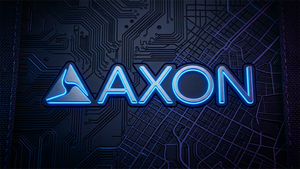Businesses expect automation of tasks through agentic AI to be top use case, with one in three executives noting the opportunity to use agentic AI for strengthening data management
Dun & Bradstreet (NYSE: DNB), a leading global provider of business decisioning data and analytics, today released findings from an AI survey it conducted that shows that a vast majority of organizations (88%) are now implementing artificial intelligence (AI), but more than half (54%) have concerns over the trustworthiness and quality of the data they are leveraging for AI.
“AI’s effectiveness – including explainability, transparency and relevancy – depends on the quality of the data it’s leveraging, yet our survey uncovered that only five in ten organizations believe their data foundation is where it should be for proper AI implementation,” said Gary Kotovets, Chief Data & Analytics Officer at Dun & Bradstreet. “For AI planning, it is vital organizations ensure that their data is sourced from a clean, single source of truth that we call mastered data. At Dun & Bradstreet, we believe mastered data and AI are paramount to building effective solutions - our data is continually cleaned, updated, and validated to ensure it is as accurate, timely, and relevant as possible once it’s in the hands of our customers.”
Other top concerns cited by survey respondents related to AI implementation include data security (46%), data privacy violations (43%), sensitive or proprietary information disclosure (42%) and data’s amplification of bias (26%). In line with these concerns, only half (52%) of organizations believe they have a good data foundation that will set them up for success with generative AI.
AI Implementation & Use Cases Vary
The survey also revealed that companies are at various stages of implementation, including exploration and research (29%), deploying AI solutions (25%), developing AI products (24%) and piloting programs/products (10%). Although use is widespread, two crucial roadblocks companies face as they integrate AI across functions are having trusted business data (33%) and navigating ethical and regulatory challenges (33%).
Other challenges faced by businesses irrespective of where they are in their AI implementation journey include:
- Aligning on business prioritization and having internal subject matter expertise (tied at 31%)
- Lack of explainability and interpretability of the technology (28%)
- AI risk assessments (27%)
- Showcasing ROI (25%)
- AI transparency (25%)
Further, companies currently deploying AI share that the highest level of progress has come from:
- Streamlining processes (42%)
- Co-piloting (39%)
- Supplementing current tasks (38%)
- Measurement and KPIs (21%)
- Scenario modeling (18%)
- Personnel bias elimination (13%)
AI Outlook for 2025
When asked about the emerging trends in AI that will impact businesses over 2025, half of survey respondents (51%) cited intelligent automation, followed closely by conversational AI (46%), multimodality and visual AI (33%) and hyper-personalized marketing (23%). Notably, one in four are preparing for impacts to their businesses stemming from the establishment of new regulatory compliance and governance frameworks.
On the best use cases for agentic AI — AI agents working autonomously without constant human guidance — in the year ahead, two-thirds (64%) of survey respondents note that automating tasks is the top use case for their business, followed by augmenting human capabilities (42%), strengthening data management (36%) and analyzing market trends (32%).
“We expect use cases for agentic AI in data management to abound this year. We’re already seeing how it can improve efficiency in processes such as data cleaning, integration, and analysis,” said Ginny Gomez, President, North America at Dun & Bradstreet. “Our customers have shared their concerns with us about aligning AI with specific business use cases and expanding AI explainability and transparency, while still meeting risk standards. We continue to prioritize building responsible AI and providing reliable data to meet these needs.”
Dun & Bradstreet recently received TrustArc’s TRUSTe Responsible AI Certification for the company’s strong commitment and adherence to responsible AI governance. Read about how the company is developing and deploying ethical AI solutions that prioritize transparency, fairness, and accountability here.
The above research and findings are based on an on-site survey conducted at The AI Summit New York (held December 11-12, 2024) of business executives across various organizational levels working in AI.
About Dun & Bradstreet
Dun & Bradstreet, a leading global provider of business decisioning data and analytics, enables companies around the world to improve their business performance. Dun & Bradstreet’s Data Cloud fuels solutions and delivers insights that empower customers to accelerate revenue, lower cost, mitigate risk, and transform their businesses. Since 1841, companies of every size have relied on Dun & Bradstreet to help them manage risk and reveal opportunity. For more information on Dun & Bradstreet, please visit www.dnb.com.
View source version on businesswire.com: https://www.businesswire.com/news/home/20250211378241/en/
Contacts
Media Contact
pr@dnb.com





